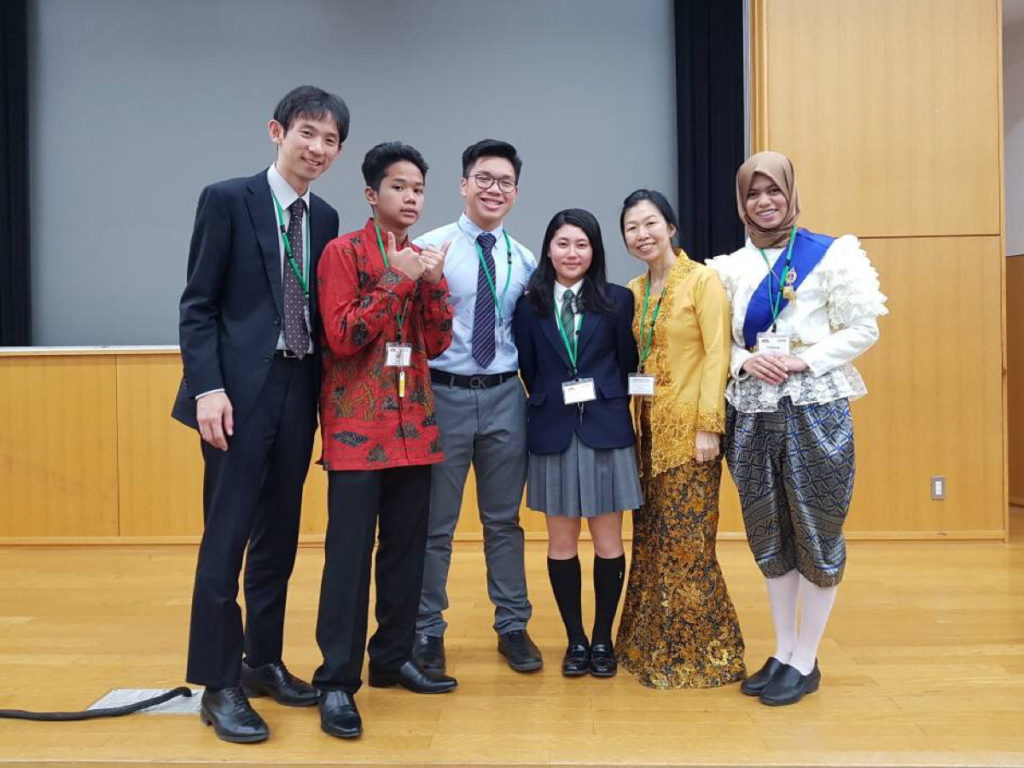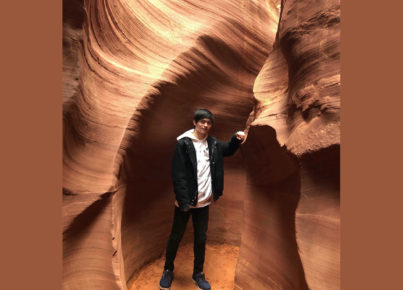“Re-evaluating Grassroots International Exchange”
Yukiko Nukina
University student (Major in Economics, Minor in Political Science)
Japan
The Covid-19 pandemic posed us many important questions in 2020: To what degree does online video tool replace real human interaction?
Does internet make the world smaller or split it more?
As classrooms, work, family gatherings and others shift online, we become more and more dependent on the Internet and information circulating on online platforms. As we experienced this shift, what we can do online as usual and what we cannot replicate once moved online became apparent. Cultural exchange is one of the experiences that cannot be recreated perfectly when done online.
Even though it is possible to read, watch foreign dramas or use various online platforms to get to know other culture, countries and people, real human-to-human relationship that leaves profound impression on one can be hardly replaced by such virtual experiences.
The very aim of grassroots international exchange being fostering understandings among different cultures and background, the fact that there are certain generation that cannot have the benefit of, and do not have such understanding toward ‘others’ through cultural exchange is a great loss as well as a real threat to the relationship among countries and to the wider international society. Moreover, online browsing is said to accelerate one’s preference as information provided by algorithm is customized for users. All these elements make us less receptible to what is happening outside each of our respective ‘bubbles’. Even though we have great online tools that make it possible for you to see a house on the other side of the globe on satellite image, there is a risk of us becoming blind to world outside.
The pandemic made clear the importance of human interaction. For international cooperation, mutual understanding and respect is the very base and that can be fostered mostly by human interaction. Cultural exchange is a way that is very effective in this regard. Understanding a person leads to understanding a culture and country. I hope that the world after the pandemic will actively advocate for interaction, communication and exchange of opinion from different side of story, and different backgrounds. As an individual, I would like to contribute to this by actively spread my experience I got from cultural exchanges like TYCA and advocate for the meaning of such scheme.
Covid-19パンデミックは、2020年に向けて多くの重要な疑問を私たちに投げかけました。オンラインのビデオ通話などのツールは、どの程度まで対面での交流に取って変わるのでしょうか?
インターネットは世界を小さくするのでしょうか?あるいは、さらなる分断をもたらすのでしょうか?
授業、仕事、家族の集まりなどがオンラインでの活動に移行していく中で、私たちはますますインターネットやオンライン上で流通する情報に依存するようになってきています。この変化を経験する中で、私たちが普通にオンラインでできることと、オンラインに移行すると再現できないことが明らかになってきました。文化交流は、オンラインで行うと完璧に再現できない体験の一つです。
本を読んだり、海外ドラマを見たり、様々なオンラインツールを利用して他の文化や国、人々を知ることは可能だとしても、人と人との間に深い印象を与えるリアルな人間関係は、このようなバーチャルな体験では代替できません。
草の根の国際交流の目的は、異文化間の理解を深めることにありますが、文化交流を通じて「他者」への理解を得られない世代がいることは、国と国との関係や国際社会にとって大きな損失であり、大きな脅威となっています。また、ネット検索やネットサーフィンはアルゴリズムによって提供される情報がユーザーに合わせてカスタマイズされるため、嗜好性を加速させると言われています。これらすべての要素が、それぞれに起こっている「変化」の範疇外で起こっていることを受け入れにくくさせます。衛星画像で地球の反対側の家を見ることができる素晴らしいオンラインツールがあっても、私たちは外の世界に盲目になってしまう危険性があります。
パンデミックは、人と人との交流の重要性を明らかにしました。国際協力のためには、お互いを理解し尊敬しあうことが基本です。そしてそれは、人と人との交流によって育まれます。文化交流は、この点で非常に効果的な方法です。他者を理解することは、文化や国を理解することにつながります。パンデミック後の世界では、異なる立場、異なる背景を持つ人々の交流、コミュニケーション、意見交換が積極的に行われるようになることを願っています。私は一個人として、TYCAのような文化交流で得た経験を積極的に広め、その意義を主張することで、異なる立場の人同士の交流や相互理解が促せるように貢献したいです。








